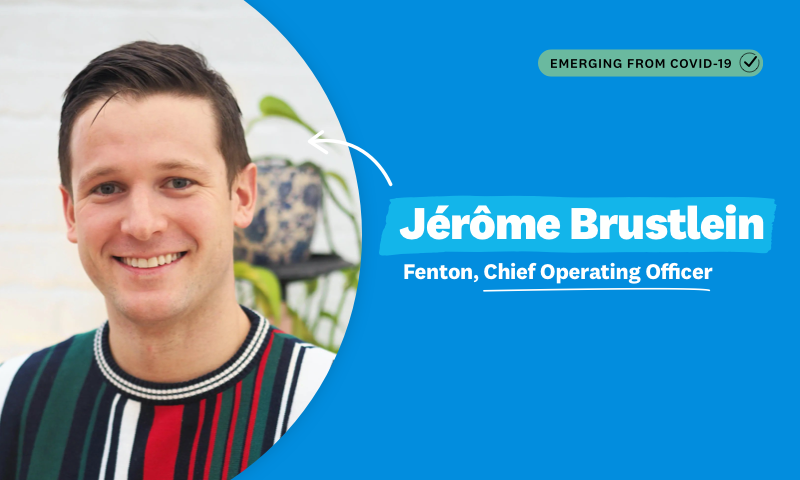
Businesses of all shapes and sizes are adjusting to the challenges of ever-shifting COVID-19 restrictions. With the UK in another period of lockdown, many small businesses are taking the lessons they learnt from earlier this year to navigate these latest restrictions.
London-based jewellery brand, Fenton, is no exception. The company was founded two years ago by Laura Lambert to provide ethical, sustainable jewellery options that reach beyond the usual palette. Today, they offer 5,000 different combinations, all made to order. We spoke remotely with Fenton’s COO, Jérôme Brustlein, to find out how the business is adapting.
The customer still comes first
Despite the coronavirus lockdowns, Fenton remains steadfastly focused on its founding principles. That means a big focus on sustainability and transparency in the supply chain. While many precious metals and jewels are the product of exploitation and human suffering, Fenton works with providers to ensure that their products are fully ethical. “We hope that this will foster a better example, driving change in the industry,” Jérôme says.
On the front end, he adds “We differentiate ourselves by working to remove stigma and stress that many people – especially men, typically – experience when shopping for jewellery. It should be a joyful and happy moment, not a stressful one. To that end, we treat all our customers fairly and with maximum support, online and in-person, regardless of their budget.”
Weathering uncertain times
Fortunately, Fenton mainly sells and takes appointments online. Even before the pandemic, 75 percent of their sales were entirely digital, including via direct messages on social media, virtual appointments, and WhatsApp. That put the business in good shape to weather this year’s challenges, says Jérôme, “We are lucky that our business is now in a better position than ever – our sales are four times higher this month than they were last year.”
However, that’s not to say they didn’t face challenges. Entering the first lockdown searches for engagement rings on Google dropped to a seven-year low, so the team at Fenton had to think about what to do differently. They leaned on their existing online presence and thought about creative ways to engage customers, like running Instagram gemology classes on IGTV.
“As the impact of the pandemic has continued, people have increasingly wanted to celebrate and mark special moments – to bring joy during this difficult time. I’m glad we’ve been able to continue helping people celebrate those moments,” Jérôme adds.
Making necessary changes
In April and May, Fenton put the business into survival mode. Jérôme says, “We considered where we were spending extra money and made cuts wherever possible. Xero was particularly essential during this period. It gave us a clear snapshot of how much money was coming in and how our cash flow would look in the future.”
Using Xero, Jérôme says, “We pulled real-time data on how the business was doing, as well as what we could expect in terms of our cash balance for the next 40, 60, and 90 days.” The business used these insights to determine how much they could spend on marketing, particularly on social media.
“Xero was in the background taking care of all the financials while we focused on running the business,” Jérôme adds.
Time to go digital
Jérôme believes it’s time for all businesses to go digital. He says, “It’s essential that structures and processes are in place so that the business can be as nimble as possible for quick decision-making. You can’t do this using outdated tech.” However, he argues that using technology doesn’t remove the human need for good communication and openness. As he puts it, “The leadership team needs to be open with the direction of the business with the rest of the team, providing them with context so they can understand that we’re all in this together.”
Visit our dedicated site for more resources, webinars and inspirational stories to help you emerge stronger from the COVID-19 pandemic.
Leave a Reply